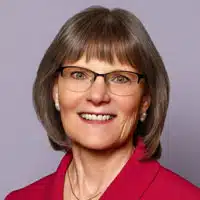
We are all familiar with the idea of passing on money and belongings to our loved ones after we die. But our most precious “possessions” are immaterial: our memories, values, wisdom and love. These are what our loved ones benefit from knowing while we are alive and miss most when we are gone. One of the most profound gifts we can create is a thoughtful legacy instrument.
Below are several resources to consider for passing on stories, memories, wisdom and life lessons. Whether you choose to record conversations, write reflective letters or use conversation cards to spark cherished memories, each option provides a unique way to communicate what matters most to you.
Some people use just one; others combine several. The stories, values and personal reflections you impart can offer enduring comfort and guidance to those you care about most, leaving a meaningful and memorable legacy for future generations.
The term “ethical will” is used in some instances. This comes from an ancient Jewish tradition of writing down one’s morals and values for future generations. Although the term is often used more broadly in modern times, I prefer “legacy letter” or “legacy instrument” as I feel it better captures the breadth of possibilities.
Examples of Available Resources
StoryCorps
This platform collects meaningful conversations about people’s lives. Recordings are saved in the U.S. Library of Congress and in an online archive, and it is now the largest single collection of human voices ever gathered.
Storyworth
This company sends a single question every week for a year. It then combines the answers with pictures submitted by the person and create a beautifully bound book that can be distributed to family members. This can even be done as a memorial book, with survivors answering questions based on what they know of the one who died.
‘Have the Talk of a Lifetime’ Conversation Cards
Created by the National Funeral Directors Association, this tool is a free deck of cards. As family members (perhaps when gathered for the holidays) draw a card and answer the question, it gently uncovers each person’s stories and memories. While less formal and not documented unless someone chooses to record it, this is a fun and bond-building way to gather life histories, hopes and perspectives within families or friendship circles.
Life Legacies
Focused especially on women, this platform offers guidance on writing an ethical will, including several products with prompts and reflections that walk you through the process step-by-step.
‘Ethical Wills: Putting Your Values on Paper, 2nd Edition’
This book, by Barry K. Baines, is available with an accompanying resource guide, provides a practical path for articulating values, beliefs and life lessons. It includes many examples and open-ended questions.
‘The Forever Letter: Writing What We Believe for Those We Love’
Its author, Elana Zaiman, coined the phrase “forever letter” for a document in which you share your values, wisdom and love with the people who matter to you most. Written as a guidebook, it includes stories, sample letters and writing tips.
‘For You When I Am Gone: Twelve Essential Questions to Tell a Life Story’
Steve Leder’s guidebook for writing a legacy letter provides questions and prompts to stimulate deep reflection as you compose your letter.
Find a Personal Historian
For the most individualized solution, find a personal historian or biographer in your area. A variety of companies provide services ranging from simply transcribing a brief oral history all the way to creating a complete, professionally designed book with text and images that tells your story. Note that prices for this work range widely and can be very high for complex projects like entire family histories.
When to Get Started
You may be wondering about the best time of life to utilize these resources. If you have a family or close network of people who love you, I recommend starting at any point. After all, how many times does a 40- or 50-year-old wish they could impart wisdom and life lessons to the teenagers in their lives? (And that’s regardless of whether those teens are their own children or not.)
Additional Reading: Broken Heart Syndrome: Illness After a Loss
As we age, we only gain more that we’d like to pass on. Ideally, then, this would be an ongoing project. One advisor I’ve worked with used StoryWorth to create a book about her mom’s life and then ended up using it for herself. She loved the experience so much that she plans to repeat it every 10 years. People who engage in the process at younger ages find it helps them make sense of their own life, clarify their purpose and define their priorities.
In fact, doing it yourself can help persuade a skeptical senior to use one of these resources. While most older people welcome the opportunity to pass on their wisdom, some may feel that you consider them to be near death and therefore dismiss the attempt. If you offer to make it an intergenerational project that you do together, they are more likely to participate and enjoy it.
Another way to overcome resistance is to frame the discussion in terms of family connections and/or curiosity, saying something like, “Your family would all love to know more about your life and experiences. It helps us know our family history and what’s important in life, and it means so much to us.” Expressing genuine interest in their wisdom can make it easier for loved ones to open up.
On a professional level, successful financial advisors regularly talk to their clients about life issues –— their goals, what they envision for the future, what they hope for their kids and grandkids. It’s natural to ask what wisdom they wish to impart and to encourage them to take advantage of these resources to accomplish it. And for middle-aged clients, doing it every five to 10 years can be a useful thought exercise about their own life and a valuable way to give wisdom and lessons to the precious people in their lives.
For the sake of those you love, I hope you investigate these and other options and then choose one or more methods to pass your wisdom and life lessons into the future. It’s one of the ways that we can contribute to the health of those we love, plus “live on” in this world even after we die. It’s a priceless gift for the loved ones we leave behind.
Amy Florian is an expert in life transition, an innovator in advisor education, and a transformational speaker & author. She is the founder & CEO of Corgenius, the first company to teach financial professionals how to support their clients in times of grief, loss and transition. She has delivered over 1,000 speaking engagements across four continents, published over 250 articles, and is the author of two multi-award-winning books. Visit www.corgenius.com to learn more.







